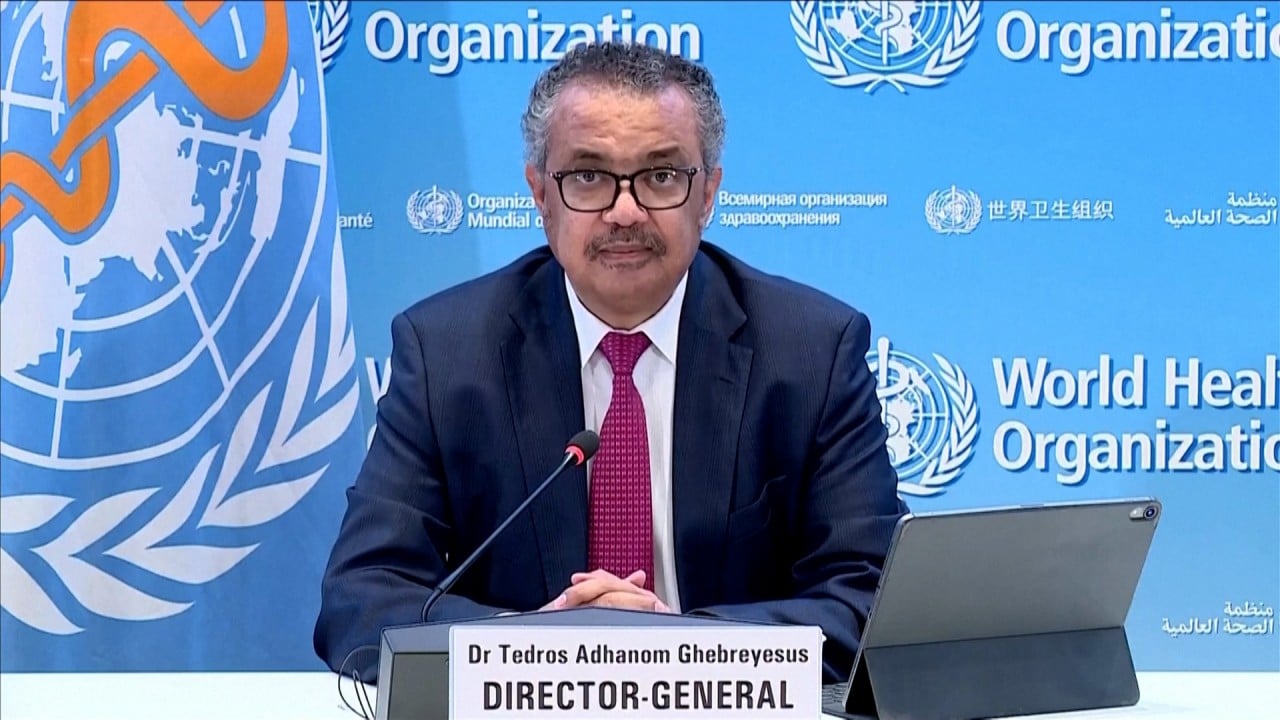
3rd Chinese Covid-19 vaccine gets WHO nod, as CanSino viral vector jab cleared for emergency use
- Thursday’s WHO announcement follows similar listings last year for vaccines from Sinopharm and Sinovac Biotech
- UN agency says the vaccine is 64 per cent effective against symptomatic disease and 92 per cent against severe cases
The emergency use listing (EUL) for CanSino’s Convidecia adds “to a growing portfolio of vaccines validated by WHO for the prevention of Covid-19 caused by Sars-CoV-2”, the UN body said in a statement on Thursday.
The single-dose vaccine is 64 per cent effective against symptomatic disease and 92 per cent so against severe cases, according to the WHO.
Inactivated vaccines use dead material from the virus to jump-start the immune system, while those like CanSino’s use an adenoviral vector to deliver a virus antigen and trigger an immune response.
The WHO has suggested that countries using approved inactivated shots for the first dose then use mRNA or vectored vaccines as part of a two-dose regimen, or as a booster for better protection.
Coronavirus: WHO gives the nod for mix-and-match vaccine schedules
On mixing shots, CanSino said a preprint study of 900 participants in China primed with two doses of inactivated vaccine showed that using its product as a mixed booster could “induce stronger immune response than the recombinant protein and inactivated vaccines”.
The antibody response for the inhaled version of the CanSino vaccine was 14-fold of that for Sinovac’s inactivated vaccine, the researchers said. Its impact was also nearly sixfold that of Anhui Zhifei Longcom’s protein subunit version and twice that of the injected CanSino vaccine.
Inhaled Covid-19 booster ‘more effective than third dose of Sinovac’
“Our findings suggest that inactivated vaccine recipients should consider adenovirus-vectored vaccine boosters in China and that [the inhaled version of the vaccine] may provide a more efficient alternative in response to the spread of the Omicron variant,” they wrote in a paper posted on preprint website medRxiv.org.
Injected vaccines induce immune responses that do not specifically target the pathogen’s region of infection. But inhaled vaccines imitate natural infection by the virus and target mucosal surfaces – the nose, throat and lungs, or the point of entry for pathogens – to induce a localised immune response.
Countries that have already approved the CanSino shot include Argentina, Chile, Ecuador, Hungary, Indonesia, Kyrgyzstan, Malaysia, Mexico and Pakistan, according to the company.


